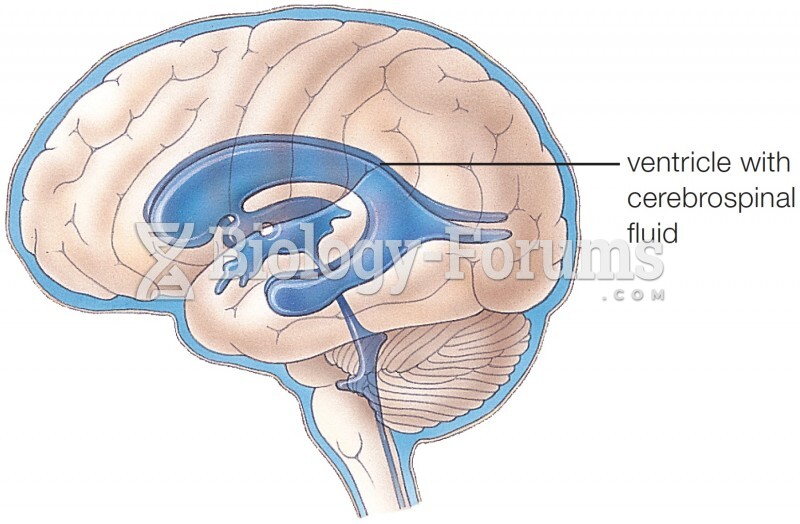|
|
|
The people with the highest levels of LDL are Mexican American males and non-Hispanic black females.
When blood is exposed to air, it clots. Heparin allows the blood to come in direct contact with air without clotting.
Adults are resistant to the bacterium that causes Botulism. These bacteria thrive in honey – therefore, honey should never be given to infants since their immune systems are not yet resistant.
Cancer has been around as long as humankind, but only in the second half of the twentieth century did the number of cancer cases explode.
Cocaine was isolated in 1860 and first used as a local anesthetic in 1884. Its first clinical use was by Sigmund Freud to wean a patient from morphine addiction. The fictional character Sherlock Holmes was supposed to be addicted to cocaine by injection.







